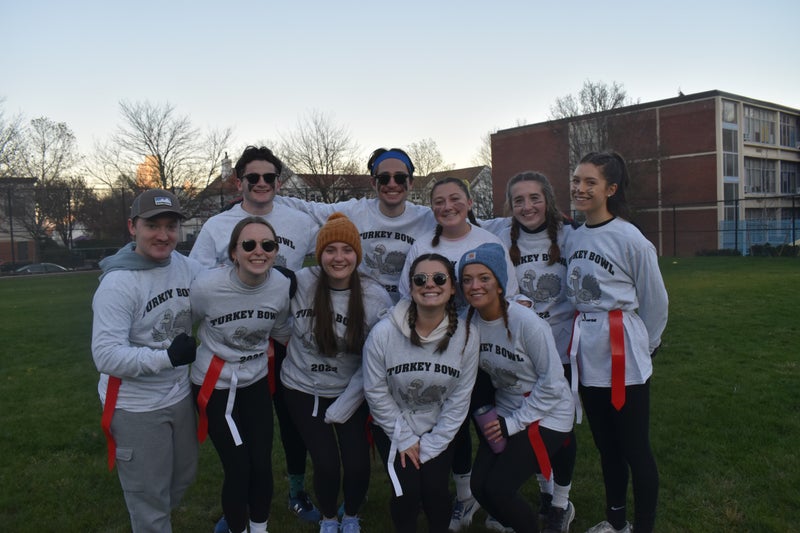Moments
Julia Sena '23
Quad Time!
I always try to study and catch up on work outside as much as possible during the warm months. Secluded enough by the trees, but also still in the heart of campus, the picnic tables next to the Quad might just be my favorite spot!
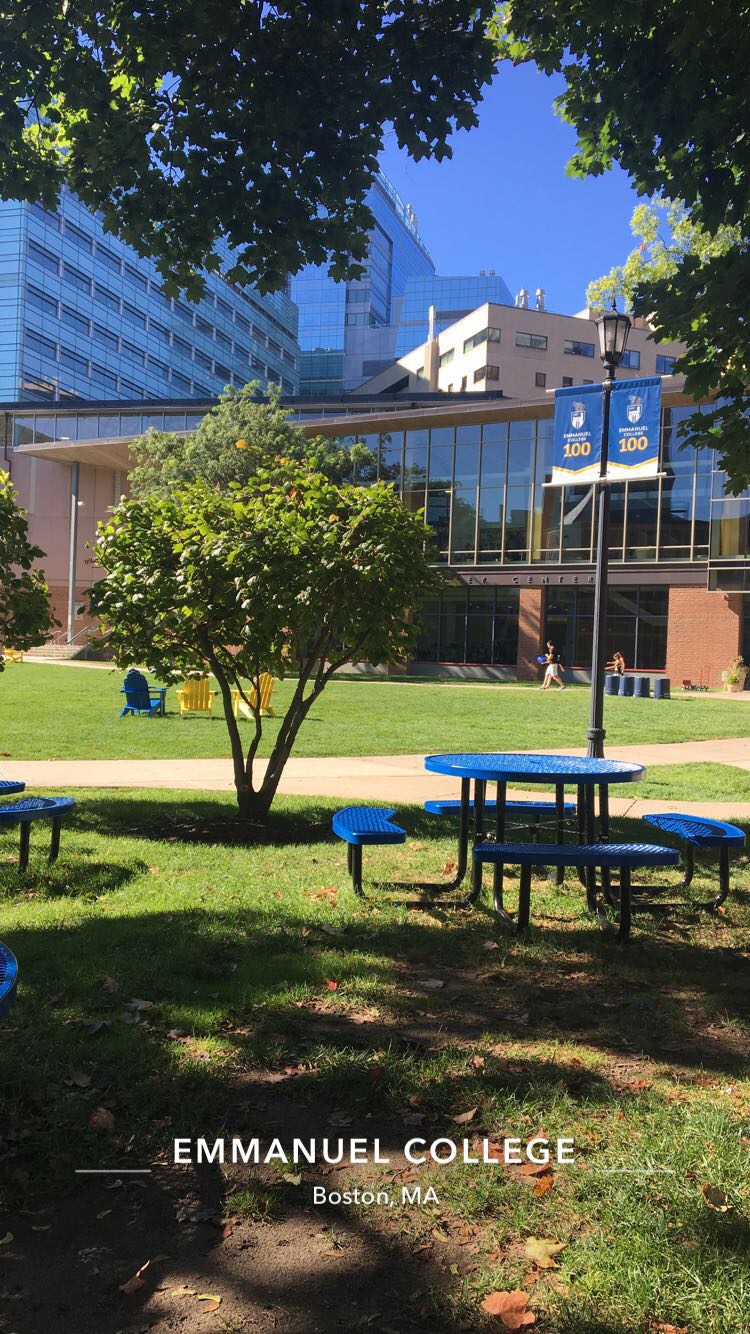
Tianna Dawe '23
History Made with Softball Team!
"My sophomore year we were the first softball team in school history to win the GNAC and played in the NCAA tournament in Texas! It was an amazing experience and a highlight of my time at Emmanuel. " - Tianna Dawe '23
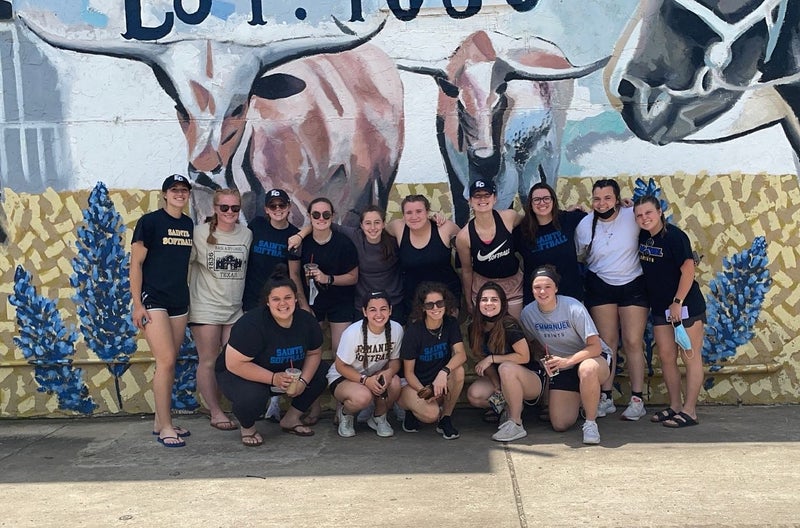
Natalie Massey '21
Museum Time
As a student at Emmanuel, you get free access to both the Museum of Fine Arts and the Isabella Stewart Gardner Museum! I take advantage of this a lot with my friends and we enjoy the beautiful garden and amazing artwork on display at the Isabella Stewart Gardner.

Nick Eline '23
Traveling with Cross Country
As a member of the Emmanuel Cross Country team I am able to travel all over to compete in collegiate meets. One of these meets was in Bethlehem, PA amongst the cornfields at Lehigh University! I really enjoy being able to travel and make memories with my teammates wherever we go.

Victoria Slattery '23
Families Coming Together for Junior Pinning
"Junior Pinning is something I will always remember. While receiving my pin was fun and exciting, my favorite part was all of my friends' families coming together to celebrate! As our parents took photos, I felt so loved and accomplished." - Victoria Slattery
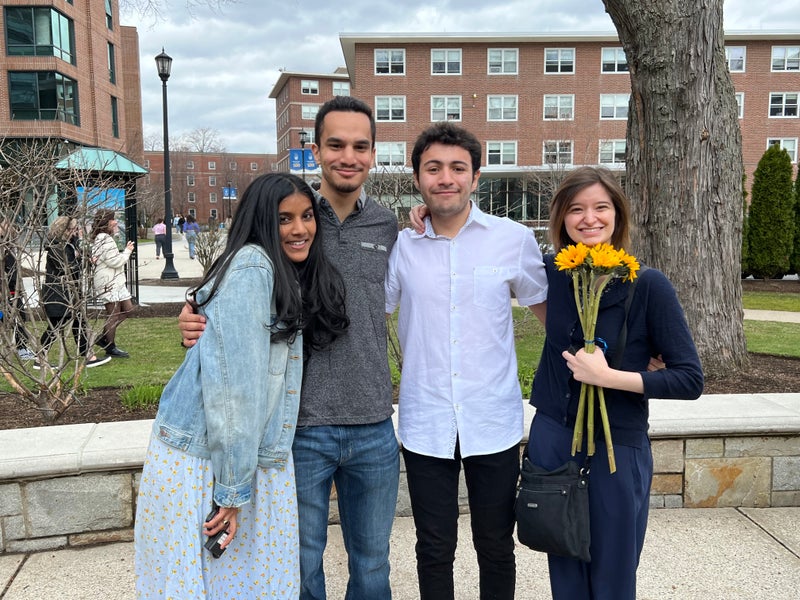
Casey Phillips '23
ASB in Phoenix, Arizona
"My senior year I attended alternative spring break and traveled to Phoenix Arizona to serve individual's experiencing homelessness at a place called André House! it was definitely an experience I will never forget!" - Casey Phillips
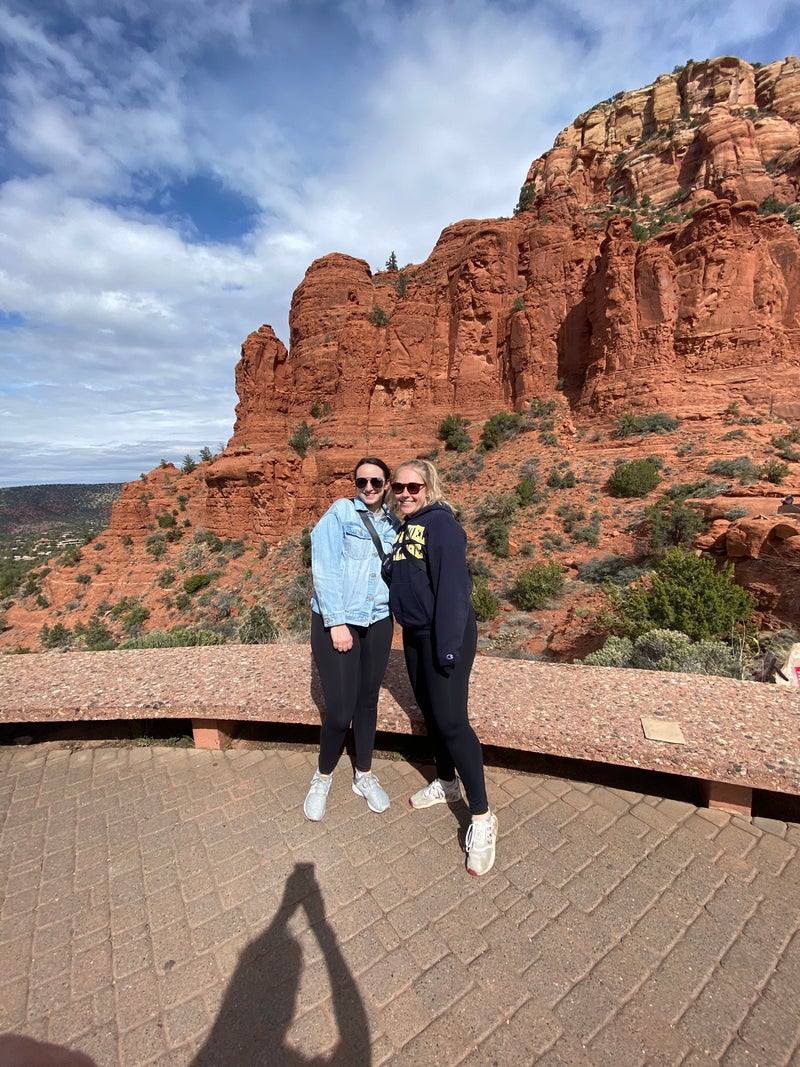
Ruby Roberge '23
Christmas in Boston
My first year at Emmanuel has brought so many great memories. Most of my memories have been with the great friends I’ve made here. One specific memory with my friends here was when we went out and explored the city before we all went home for Christmas break. We had planned a secret Santa between us but decided to go out to dinner off campus before. It was great to get off campus and explore the city, especially when it is all lit up for the holiday! In the Faneuil Hall area there were street performances that we stopped and watched and just enjoyed our time off campus. It was a great way to end the semester and escape the finals season before we all went home for break!
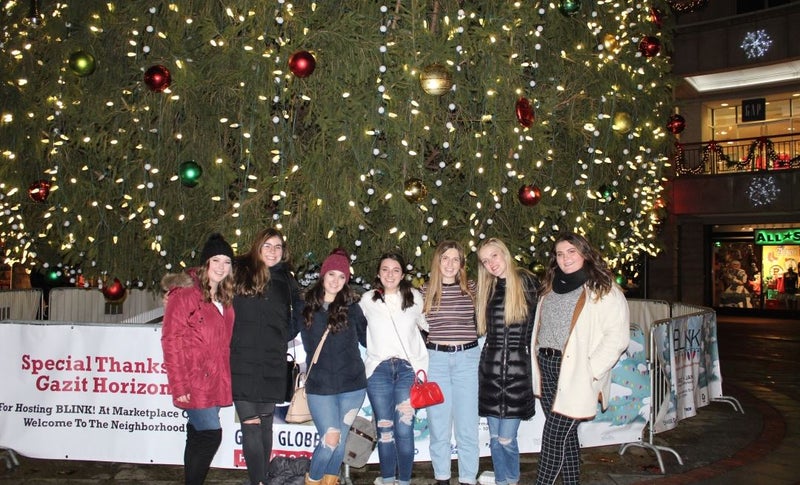
Amena Hamdi '23
Tourists for a Day
My favorite memory of my first year on campus was the day my friends and I went for a photoshoot after our classes. We all got dressed up and had a tourist day during the Fall semester so we could see what was around campus. Rather than choosing destinations we just walked. In our time out we managed to hit a majority of the tourist spots in the EC area. During our little adventure we saw the Prudential Center, the Boston Public Library, Newbury Street and Fenway Park. The next day our feet had been a bit sore, but that was nothing a little girls night in couldn’t fix. In the end we got super cute photos, a little taste of what Boston has to offer, and an unbreakable bond with new friends, which is all I could ever ask for.

Natalie Massey '21
Go Sox!
One of my fondest fall memories at EC was getting tickets to a Red Sox game in September with a bunch of my friends! It was so fun to be together and be a part of a huge tradition that comes with being in Boston, cheering on the Sox!

Gwen Freeman '23
Spring has Sprung in Boston!
Spring time in Beantown!
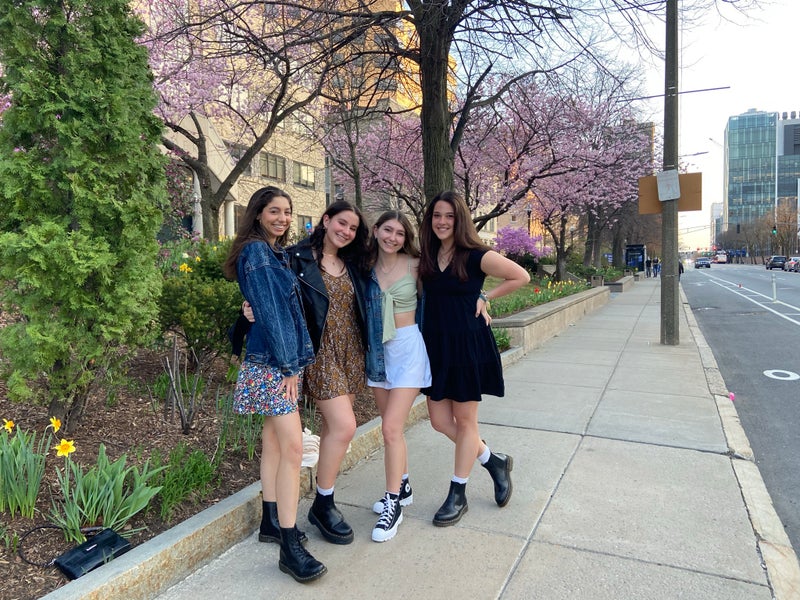
Kasey Jiang '23
Fun Adventures in the City
"One example of many of the times I went on fun adventures with a friend/friends. My friends and I went around Boston and walked around the Boston Common and Garden then came back took this picture of my friend and I around Fenway". - Kasey Jiang
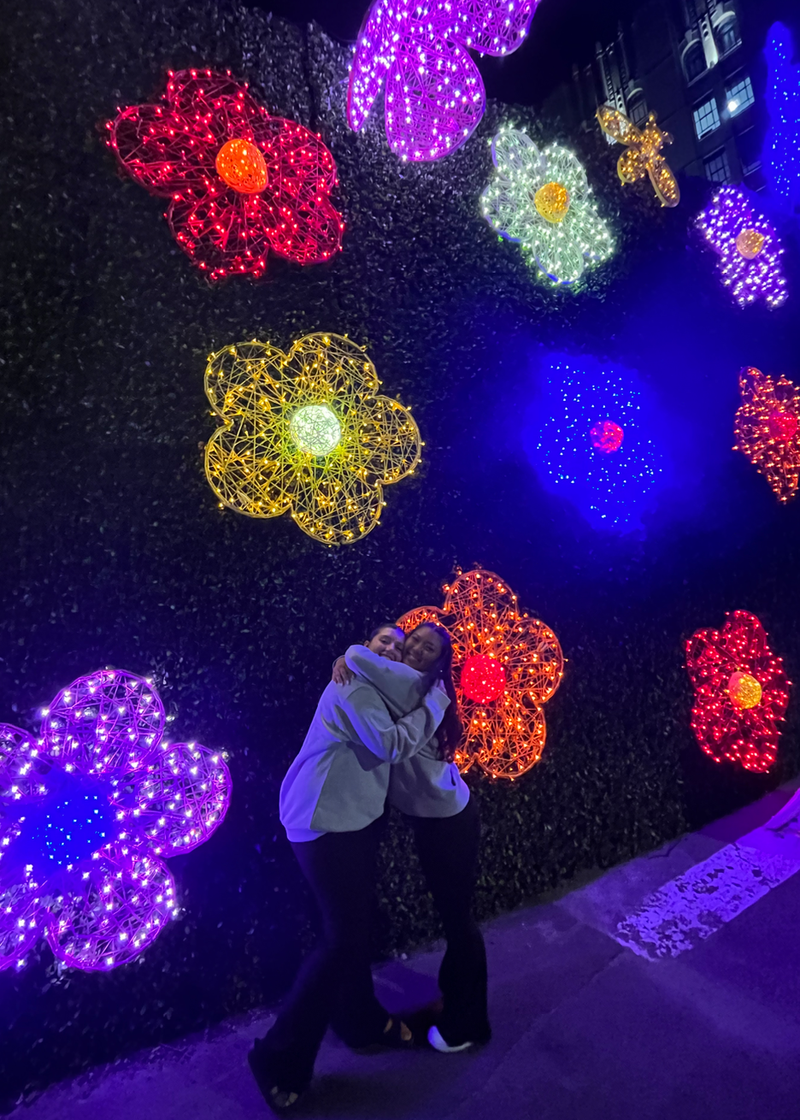
Luke Patriquin '23
Fun Times Playing Flag Football
Flag Football Tournament!
